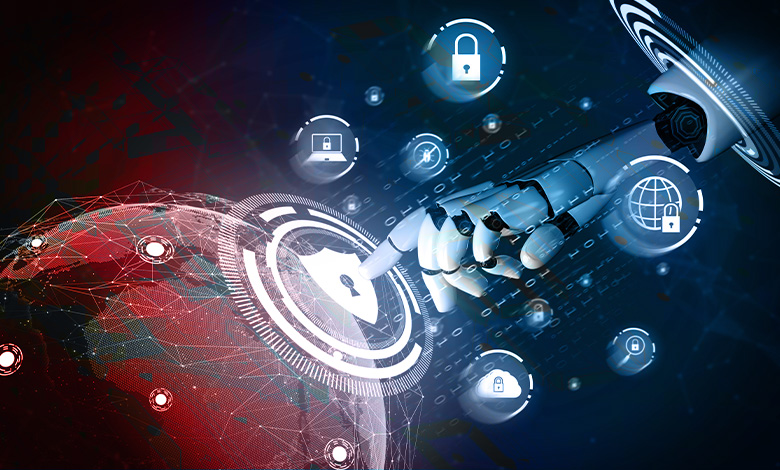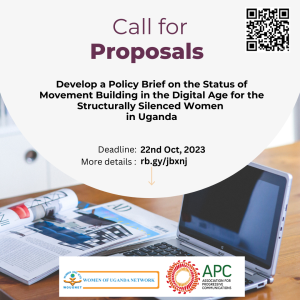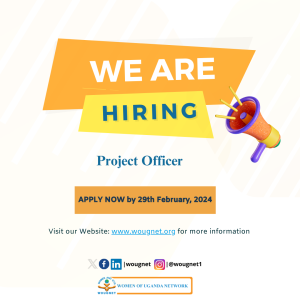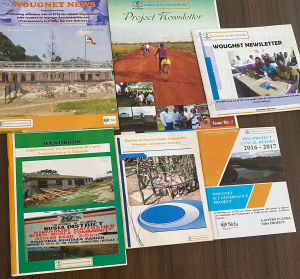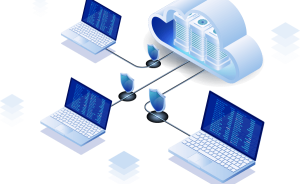In the world we live in today, with every sphere of life being engulfed by digitalization, either directly or indirectly, it’s only possible that one can thrive within the space when aware of the risks around them, fully equipped with digital skills and digital security tools.
Women of Uganda Network (WOUGNET), a non-governmental organization that promotes and supports the use of ICTs by women and women’s organizations in Uganda with support from the Digital Human Rights Lab (DHRLab) conducted a two weeks capacity-building training on online safety and digital security in which I took part.
The training was focused on empowering 6 community volunteers and Training of Trainers (TOT) identified from 5 districts of Uganda.
The first phase of the training kicked off from 30th August 2021 to 3rd September 2021 with the TOT which comprised a number of 6 participants.
The purpose of the training was to prepare the trainers for the 5 days’ training on online safety and digital security for 120 women politicians, journalists, artists, University students, and law enforcement officers in Uganda to improve protection and response to online gender-based violence.
As a trainer who participated in the TOT, I was able to acquire knowledge in the best approach to handling adult learning. During the TOT, the trainer Mr. Gole Andrew stressed the best methodologies and approaches to handling adult learning. He said adults learn because they want to but not because they need to.
He further mentioned that adults have other priorities that need their attention as opposed to children who learn because they need to survive in the tough environment in the future.
Some of the approaches and methodology I learned during the training included the use of activities and discussions that allows knowledge sharing and hands-on practice for deepening the understanding of the participants on digital security. Indeed, I found these skills so unique, and special thanks should be given to WOUGNET that it was my first time acquiring them yet quickly adopting them.
Why Online Privacy and Security is Important?
The second phase of the training kicked off from 6th September 2021 to 10th September 2021.
This phase was for the community volunteers from the district of Lira. The training consisted of 25 participants from different fields of work among which included; politicians, journalists, artists, University students, and law enforcers.
The purpose of the training was to improve the protection of women’s online privacy and security tools while using online platforms. It was also to enhance online safety and digital security through strategic digital literacy capacity skills-building training for the most at-risk women and youth to reduce unlawful abuse or misuse of digital platforms in Uganda.
The training approach was majorly sharing of experience and discussing in detail the online safety tips. The participants all admitted that they were faced with at least one or two online security attacks thus the need to mitigate them. Some of the attacks discussed included; stalking, trolling, doxing, cyber-bullying, hate speech, online harassment, phishing, hacking, and impersonation among others.
As a trainer, I learned that there are quite a number of women, thus say politicians, journalists, artists, University students, law enforcers, etc., that are facing different forms of online risks in Uganda. It takes an initiative such as digital security capacity building training to mitigate the above-mentioned online risks. Cyber security thrives in the shadows, however, the lighter we shine on it, the better the chances of stopping the adversary.
Recommendation
I recommend that at each level, whether individual or organizational, the need for digital safety should be paramount, knowing that the desire to become a human firewall starts with the urgency and capability of protecting one’s own information.
Therefore, your personal information and your computer are really valuable, and online violence perpetrators such as bullies, stalkers, and hackers among others really know it, so be enlightened by following digital safety tips to keep safe while navigating the various digital platforms.
By Happy Ayomirwoth Ongi
……………………………………………………………………………………………………………………………………….
This article is part of a series of posts by trainers of trainees during the online safety and digital security capacity-building workshop conducted by Women of Uganda Network (WOUGNET) under the project, Enhancing Women’s Rights Online through Inclusive and effective response to Online Gender-based Violence in Uganda. The project is funded by the Digital Human Rights Lab which is implemented by better place lab and Future Challenges under a grant agreement with the Deutsche Gesellschaft für Internationale Zusammenarbeit (GIZ) Programme Strengthening Governance and Civil Society in Uganda, funded by the German Federal Ministry of Economic Cooperation and Development (BMZ) under its Digital Africa Initiative.
Image Credit: image

